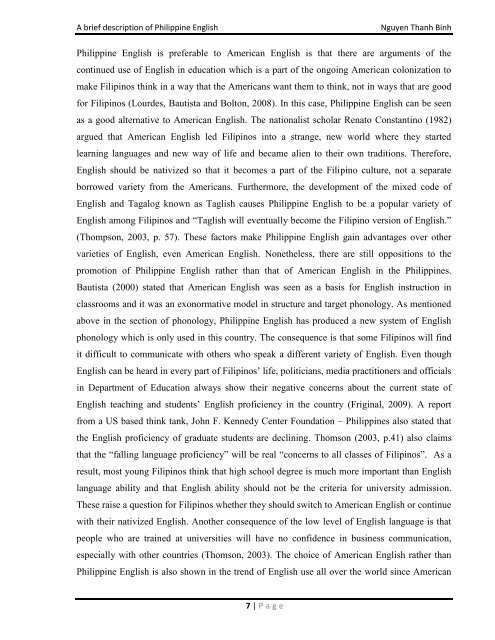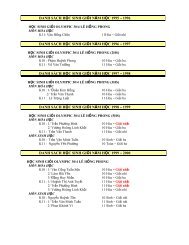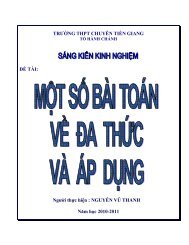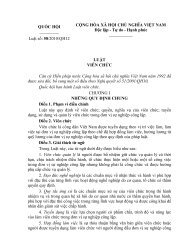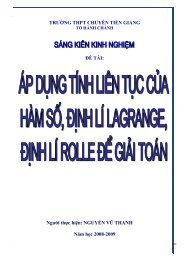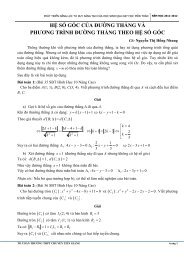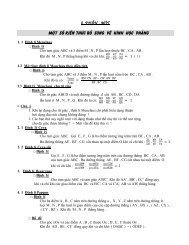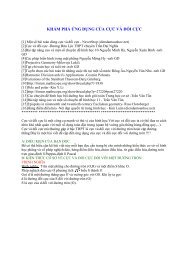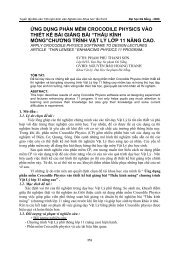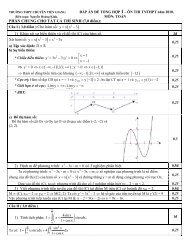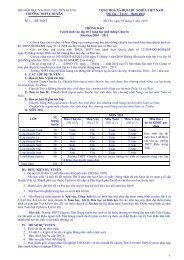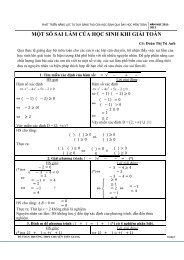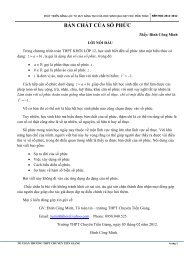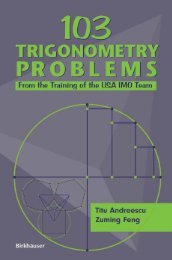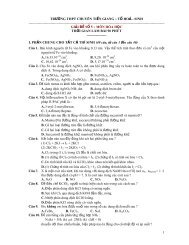A BRIEF DESCRIPTION OF PHILIPPINE ENGLISH
A BRIEF DESCRIPTION OF PHILIPPINE ENGLISH
A BRIEF DESCRIPTION OF PHILIPPINE ENGLISH
Create successful ePaper yourself
Turn your PDF publications into a flip-book with our unique Google optimized e-Paper software.
A brief description of Philippine English Nguyen Thanh Binh<br />
Philippine English is preferable to American English is that there are arguments of the<br />
continued use of English in education which is a part of the ongoing American colonization to<br />
make Filipinos think in a way that the Americans want them to think, not in ways that are good<br />
for Filipinos (Lourdes, Bautista and Bolton, 2008). In this case, Philippine English can be seen<br />
as a good alternative to American English. The nationalist scholar Renato Constantino (1982)<br />
argued that American English led Filipinos into a strange, new world where they started<br />
learning languages and new way of life and became alien to their own traditions. Therefore,<br />
English should be nativized so that it becomes a part of the Filipino culture, not a separate<br />
borrowed variety from the Americans. Furthermore, the development of the mixed code of<br />
English and Tagalog known as Taglish causes Philippine English to be a popular variety of<br />
English among Filipinos and “Taglish will eventually become the Filipino version of English.”<br />
(Thompson, 2003, p. 57). These factors make Philippine English gain advantages over other<br />
varieties of English, even American English. Nonetheless, there are still oppositions to the<br />
promotion of Philippine English rather than that of American English in the Philippines.<br />
Bautista (2000) stated that American English was seen as a basis for English instruction in<br />
classrooms and it was an exonormative model in structure and target phonology. As mentioned<br />
above in the section of phonology, Philippine English has produced a new system of English<br />
phonology which is only used in this country. The consequence is that some Filipinos will find<br />
it difficult to communicate with others who speak a different variety of English. Even though<br />
English can be heard in every part of Filipinos‟ life, politicians, media practitioners and officials<br />
in Department of Education always show their negative concerns about the current state of<br />
English teaching and students‟ English proficiency in the country (Friginal, 2009). A report<br />
from a US based think tank, John F. Kennedy Center Foundation – Philippines also stated that<br />
the English proficiency of graduate students are declining. Thomson (2003, p.41) also claims<br />
that the “falling language proficiency” will be real “concerns to all classes of Filipinos”. As a<br />
result, most young Filipinos think that high school degree is much more important than English<br />
language ability and that English ability should not be the criteria for university admission.<br />
These raise a question for Filipinos whether they should switch to American English or continue<br />
with their nativized English. Another consequence of the low level of English language is that<br />
people who are trained at universities will have no confidence in business communication,<br />
especially with other countries (Thomson, 2003). The choice of American English rather than<br />
Philippine English is also shown in the trend of English use all over the world since American<br />
7 | P a g e


